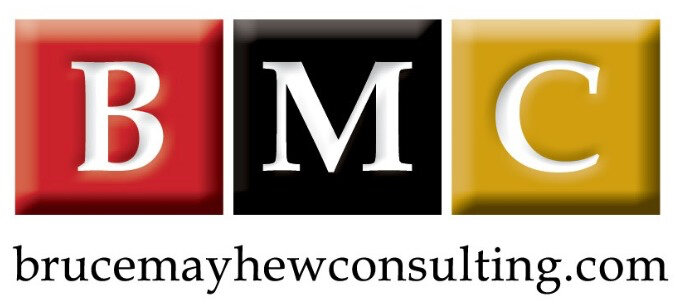How Your Virtual Body Language Impacts Your Personal And Professional Brand
/Like many ‘business buzz-words’ I believe the term digital body language is evolving to include virtual body language. One of the first references I found of digital body language is the 2010 book by Steven Woods called ‘Digital Body Language’. Loosely speaking, this is what Steven calls the online viewing history you and I create when visiting and interacting with different websites. The idea was, and still is that our online history (digital body language) can be analyzed and interpreted by organizations with sophisticated marketing departments to predict what our present and future wants, needs and reactions may be. To give you an example, I think we have all noticed that shortly after we’ve done some online research about a potential purchase, the next thing we know that item begins to show up in our Facebook advertising feed.
How digital body language evolved.
The evolution of the phrase ‘digital body language’ now also refers to the often-unintentional tone our readers ‘read’ from every email or instant message (IM) we write. This is what many people call our virtual communication, and therefore, our ‘virtual body language’. Every time you and I send an email or IM our readers instantly and often unconsciously interpret our message many different ways but they generally fall into four different areas:
Helpful / Supportive
Respectful / Honest
Pushy / Demanding
Dismissive
In other words, every email or instant message we write impacts our personal and professional reputation.
Is Our Virtual Body Language Really A Big Deal?
Yes, this is a big deal. How many email do you write and respond to every day? Studies show most professionals send and respond to between 50 and 250 email a day, often addressed to multiple people; this doesn’t even consider all of the instant messages. The result is that every week your email alone are likely making thousands of impressions with coworkers, suppliers and customers. In other words, your virtual communication and / or virtual body language is building your brand / your reputation every time you hit send. Hopefully you are writing with that in mind.
Still not convinced this is a big deal? Take a moment to consider how may messages you receive that sound vague, bossy, rude and/or read like one long disorganized thought. I bet you get more than a few each day and I bet they also often come from the same people. Now, what is your opinion of these people? Do you rush to read their email and go out of your way to help them? The end result is that their virtual body language negatively impacts their performance and their success… even if they don’t even know it.
In short, the reputation we build over time is either favourable or unfavourable and it will impact our immediate and long-term career success. And, with more of us now working remotely and now also routinely using video calls, the impressions we make is more important than ever.
The success of the companies we work for depends on its reputation, and in many of the same ways the virtual brand you create is critically important to your professional future; it matters what others think of you. Being good at your job isn’t good enough anymore. To excel in this fast-paced, technology driven world, the people we work with have to trust us and feel that we respect them, their time and their expertise/experience.
Now that we agree every email and IM we write makes an impression and whether we mean it or not, the million dollar question is, “Do you intentionally write a positive (or at least neutral) message?” If we are not paying attention to how our readers may interpret our message it is highly likely at least some of our messages sound vague, bossy, rude and/or read like one long disorganized thought.
Conclusion
Companies spend amazing fortunes to control their brand and align it with the company’s values. Unfortunately every employee may be unintentionally undermining their and the company’s digital brand every time they click ‘Send’. This is where Email Etiquette Training is important and can help team members support their own reputation as well as the companies brand.
I don’t think it matters if we call how we communicate digital body language, virtual body language or virtual brand. The important thing is that every time we hit send on an email, instant message or every time we participate in a video call that we recognize others are quickly deciding if we are one-hundred different things. Are your email professional, knowledgeable, trustworthy, respectful, helpful, collaborative, dependable… or are we writing email and IM that are toxic, demanding, disrespectful of others time and needs, working with a hidden agenda, self-centered and egotistical? And, what reputation are we also building for our company?
Thank you for reading. I hope you have enjoyed.
Bruce
About Bruce and Bruce Mayhew Consulting.
Bruce is Corporate Trainer and Executive Coach.
As a Corporate Trainer Bruce Mayhew (of BMC) specialize in customized Time Management Training, Email Etiquette Training, Leadership & New Leadership Development, Generational Differences and other soft skills training solutions in Toronto and across Canada. Bruce is also an Executive Coach to a few select clients.
BMC helps your greatest assets think productive and be productive.
Bruce is an experienced motivational speaker in Toronto and has inspired audiences across Canada and within the USA and the UK. Bruce works hard to always make sure your training event, conference, retreat, or annual general meeting is a success.




